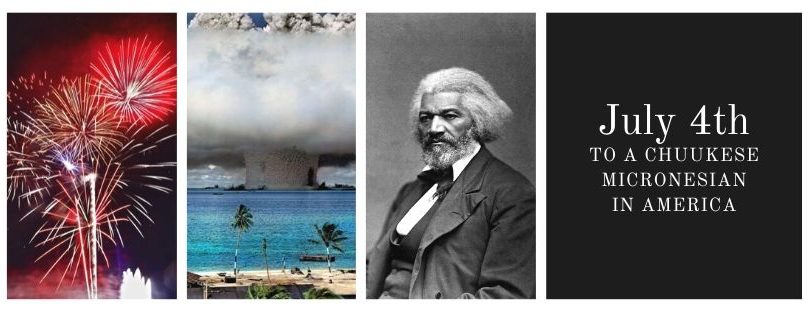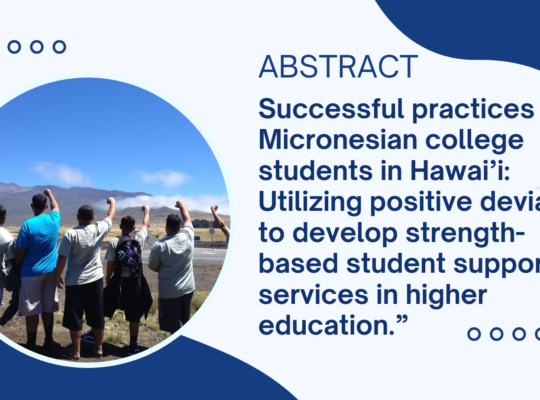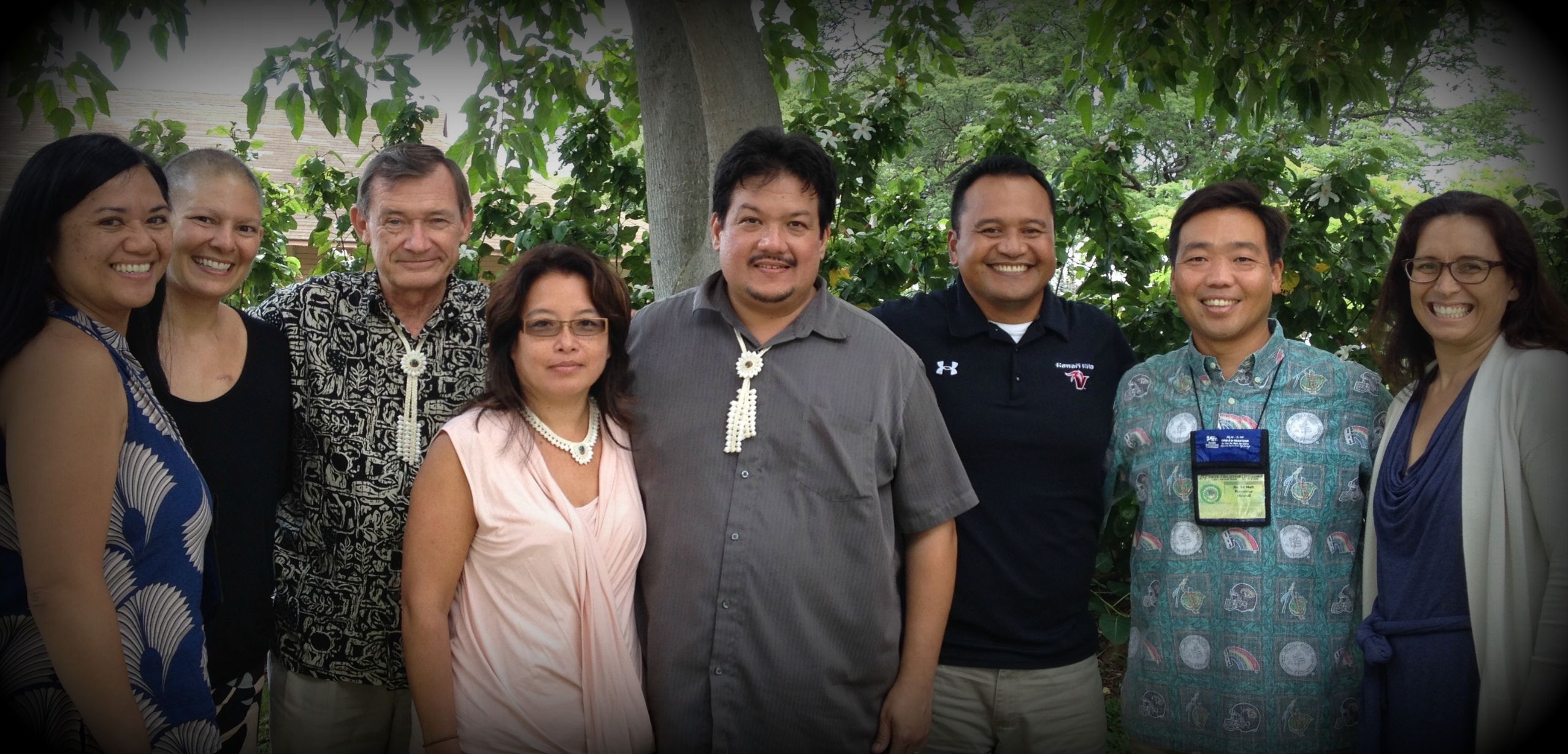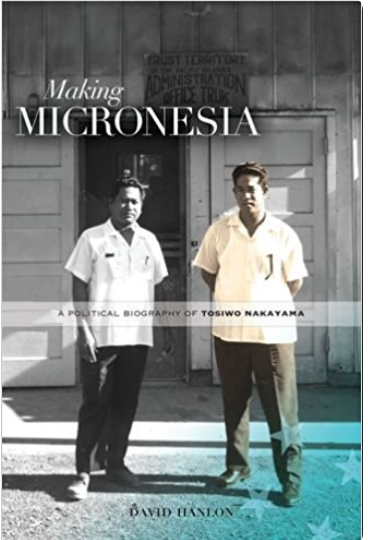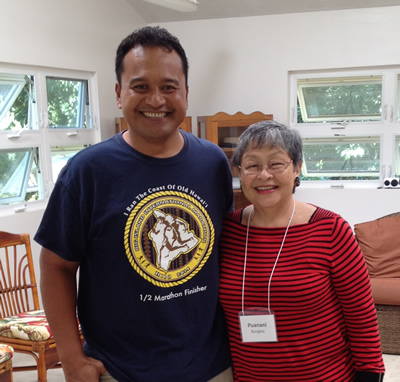Lest I forget, July 4th celebrates the adoption of the Declaration of Independence on July 2, 1776 by the 13 colonies of the British government. That act of courageous deviance to form a radically democratic union led by a band of visionaries gave birth to the United States of America. I join my American family and friends in honoring this nation for which I am privileged to raise a family.
I am also mindful as an immigrant in America that the American government has not always lived up to its stated values and aspirations domestically and internationally. The government has done unimaginable injustices to its own citizens and to countless citizens of other nations including the Micronesian region. Its legacy of nuclear testing in the Marshall Islands from 1946-1958 continues to impact the lives of the Marshallese people. During those years, the US government conducted 67 nuclear tests which is equivalent to 7,000 Hiroshima bombs according to UNESCO.
Today, the Marshallese people are nuclear and climate change refugees because most of their islands remain radioactive and impacted by climate change sea rise. They suffer the highest rate of cancer and birth defects associated with the radioactive legacy in the Pacific. Sadly, those who moved to the US seeking a better life are now suffering highly disproportionate rate of COVID-19 cases and deaths in the US due to health disparity.
Yes, I join my American family and friends to celebrate July 4th as the birth of this American nation of which I live. Yet I wonder if American citizens know about March 1st which is Nuclear Victims Remembrance Day in the Marshall Islands linked directly to March 1, 1954 when the US government detonated its first thermonuclear hydrogen bomb codenamed Castle Bravo on the Bikini Atolls. Do they know that American soldiers from small towns were deliberately used as guinea pigs along with the indigenous Marshallese people to study the effects of radioactivity on human beings? Do they even know that their skimpy beach outfits is linked directly to the same Bikini Atoll where American women were brought to the islands to service the American soldiers? Bikini was then marketed in the US as a popular beach outfit.
As a Micronesian immigrant in America in 2020, I have never felt so hopeful in the American voters to reclaim the soul this nation at home and abroad on November 3rd. That would be a good start on the immediate front for those of us who are unable to vote but are impacted by US foreign and domestic policies. It won’t erase the past actions of the US government in the Pacific any more than its history of slavery and racism, but it would be a great start for immigrants like me and the future of my American children.
America has a responsibility to the global community it has impacted. America claimed its independence from an oppressive British monarchy in 1776. Some 210 years later in 1986, my budding nation of the Federated States of Micronesia (FSM) and the Republic of the Marshall Islands (RMI) signed the Compact of Free Association (COFA) treaty with the same United States enabling legal migration of citizens of those nations to the US.
I am gratefully reaping the benefits of this special bond between my country and the US. At the same time I am mindful that the same US government has a responsibility to educate its citizens on the nefarious activities on small islands in the Pacific. I want my US-born Chuukese American children to understand that part of their responsibility as American citizens is to learn the good, bad, and ugly history of their nation so they will never repeat them at home or globally.
If my words are meaningless to an American because I am not one, then I’ll let an American share his reflection. I’ve always admired the 1852 July 4th speech entitled, “What to the Slave is Fourth of July,” by the great abolitionist Frederick Douglass. In that famous speech he praised the courage of the Founding Fathers, but also condemned the hypocrisy of its government’s stance on slavery, racism, and today we might add its foreign, healthcare, economic policies.
What, to the American slave, is your 4th of July? I answer: a day that reveals to him, more than all other days in the year, the gross injustice and cruelty to which he is the constant victim. To him, your celebration is a sham; your boasted liberty, an unholy license; your national greatness, swelling vanity; your sounds of rejoicing are empty and heartless; your denunciations of tyrants, brass fronted impudence; your shouts of liberty and equality, hollow mockery; your prayers and hymns, your sermons and thanksgivings, with all your religious parade, and solemnity, are, to him, mere bombast, fraud, deception, impiety, and hypocrisy — a thin veil to cover up crimes which would disgrace a nation of savages. There is not a nation on the earth guilty of practices, more shocking and bloody, than are the people of these United States, at this very hour.
I share the same sentiment of the abolitionist Douglass Fellow Citizens when he praised the Founding Fathers,
I am not wanting in respect for the fathers of this republic. The signers of the Declaration of Independence were brave men. They were great men too — great enough to give fame to a great age. It does not often happen to a nation to raise, at one time, such a number of truly great men. The point from which I am compelled to view them is not, certainly, the most favorable; and yet I cannot contemplate their great deeds with less than admiration. They were statesmen, patriots and heroes, and for the good they did, and the principles they contended for, I will unite with you to honor their memory. They loved their country better than their own private interests; and, though this is not the highest form of human excellence, all will concede that it is a rare virtue, and that when it is exhibited, it ought to command respect. He who will, intelligently, lay down his life for his country, is a man whom it is not in human nature to despise. Your fathers staked their lives, their fortunes, and their sacred honor, on the cause of their country. In their admiration of liberty, they lost sight of all other interests. They were peace men; but they preferred revolution to peaceful submission to bondage. They were quiet men; but they did not shrink from agitating against oppression. They showed forbearance; but that they knew its limits. They believed in order; but not in the order of tyranny. With them, nothing was “settled” that was not right. With them, justice, liberty and humanity were “final;” not slavery and oppression. You may well cherish the memory of such men. They were great in their day and generation. Their solid manhood stands out the more as we contrast it with these degenerate times…
I think Douglass’ conclusion rings true today as it was in 1852. He spoke about the ending of slavery, the bridging of national and international affairs, the awakening of humanity to shared knowledge and space, of breaking down old political barriers.
Allow me to say, in conclusion, notwithstanding the dark picture I have this day presented of the state of the nation, I do not despair of this country. There are forces in operation, which must inevitably work the downfall of slavery. “The arm of the Lord is not shortened,” and the doom of slavery is certain. I, therefore, leave off where I began, with hope. While drawing encouragement from the Declaration of Independence, the great principles it contains, and the genius of American Institutions, my spirit is also cheered by the obvious tendencies of the age. Nations do not now stand in the same relation to each other that they did ages ago. No nation can now shut itself up from the surrounding world, and trot round in the same old path of its fathers without interference. The time was when such could be done. Long established customs of hurtful character could formerly fence themselves in, and do their evil work with social impunity. Knowledge was then confined and enjoyed by the privileged few, and the multitude walked on in mental darkness. But a change has now come over the affairs of mankind. Walled cities and empires have become unfashionable. The arm of commerce has borne away the gates of the strong city. Intelligence is penetrating the darkest corners of the globe. It makes its pathway over and under the sea, as well as on the earth. Wind, steam, and lightning are its chartered agents. Oceans no longer divide, but link nations together. From Boston to London is now a holiday excursion. Space is comparatively annihilated. Thoughts expressed on one side of the Atlantic, are distinctly heard on the other. The far off and almost fabulous Pacific rolls in grandeur at our feet. The Celestial Empire, the mystery of ages, is being solved. The fiat of the Almighty, “Let there be Light,” has not yet spent its force. No abuse, no outrage whether in taste, sport or avarice, can now hide itself from the all-pervading light. The iron shoe, and crippled foot of China must be seen, in contrast with nature. Africa must rise and put on her yet unwoven garment. “Ethiopia shall stretch out her hand unto God.”
Lastly, as a Pacific Islander, I especially found solace in Douglass’ words, “Oceans no longer divide, but link nations together.” I wonder now if the Founding Fathers of my nation of the FSM got their inspiration when they wrote into the Preamble of the FSM Constitution the following,
” WE, THE PEOPLE OF MICRONESIA, exercising our inherent sovereignty, do hereby establish this Constitution of the Federated States of Micronesia.
With this Constitution, we affirm our common wish to live together in peace and harmony, to preserve the heritage of the past, and to protect the promise of the future.
To make one nation of many islands, we respect the diversity of our cultures. Our differences enrich us. The seas bring us together, they do not separate us. Our islands sustain us, our island nation enlarges us and makes us stronger.
Our ancestors, who made their homes on these islands, displaced no other people. We, who remain, wish no other home than this. Having known war, we hope for peace. Having been divided, we wish unity. Having been ruled, we seek freedom.
Micronesia began in the days when man explored seas in rafts and canoes. The Micronesian nation is born in an age when men voyage among stars; our world itself is an island. We extend to all nations what we seek from each: peace, friendship, cooperation, and love in our common humanity. With this Constitution we, who have been the wards of other nations, become the proud guardian of our own islands, now and forever.“
